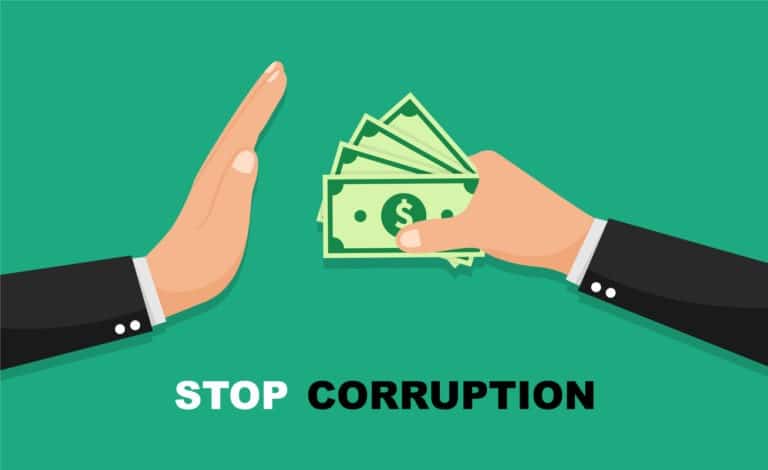On December 6, 2021, the Biden-Harris Administration released the first-ever United States Strategy on Countering Corruption (Anti-Corruption Strategy). The Anti-Corruption Strategy outlines a whole-of-government approach to elevate the fight against corruption and establishes the fight against corruption as a core U.S. national security interest. The objectives of the Anti-Corruption Strategy are to improve the U.S. Government’s ability to prevent corruption, more effectively combat illicit finance, better hold corrupt actors accountable, and strengthen the capacity of activists, investigative journalists, and others on the front lines of exposing corrupt acts.
The U.S. Government will organize its anti-corruption efforts around five mutually reinforcing pillars of work:
- Modernizing, coordinating, and resourcing U.S. Government efforts to fight corruption;
- Curbing illicit finance;
- Holding corrupt actors accountable;
- Preserving and strengthening the multilateral anti-corruption architecture; and
- Improving diplomatic engagement and leveraging foreign assistance resources to advance policy goals.
The Anti-Corruption Strategy includes recommendations to enlist whistleblowers to combat corruption, including the following:
- Bringing aggressive enforcement action, including relevant tax enforcement, against money launderers and those who enable launderers as appropriate, considering new legislation expanding criminal substantive law as needed, and expanding investigative tools as well as new information generated by whistleblower programs and enhanced beneficial owner information disclosure obligations.
- Establishing a kleptocracy asset recovery rewards program that will enhance the U.S. Government’s ability to identify and recover stolen assets linked to foreign government corruption that are held at U.S. financial institutions.
In addition, the Strategy contemplates taking measures to protect whistleblowers.
The SEC Whistleblower Program that Congress established in the Dodd-Frank Act has proven to be effective in generating high-quality tips that have enabled the SEC to halt fraud schemes and protect investors. Since the SEC Whistleblower Program’s inception, enforcement matters brought using information from whistleblower tips have resulted in orders for nearly $5 billion in total monetary sanctions, including more than $3.1 billion in disgorgement of ill-gotten gains and interest, of which more than $1.3 billion has been, or is scheduled to be, returned to harmed investors.
The program has generated more than 52,400 tips from whistleblowers worldwide, including tips concerning FCPA violations. In FY 2021, the SEC received tips from individuals in 99 foreign countries, as well as from every state in the United States and the District of Columbia, and approximately 20% of the whistleblowers that received awards in FY 2021 were based outside of the United States.
Under the SEC Whistleblower Program, the SEC will issue awards to whistleblowers who provide original information that leads to enforcement actions with total monetary sanctions (penalties, disgorgement, and interest) in excess of $1 million. In exchange for the valuable information, a whistleblower may receive an award of between 10% and 30% of the total monetary sanctions collected in an FCPA enforcement action. The whistleblower can get an award not only from the monetary sanctions collected by the SEC, but also from sanctions collected by the Department of Justice in a related action. The SEC permits whistleblowers to submit information anonymously to the SEC if represented by an attorney.
In light of the success of the SEC whistleblower program in combatting securities fraud and FCPA violations, the Biden-Harris Administration and Congress should strengthen existing whistleblower reward programs and provide the resources necessary to investigate whistleblower tips and prosecute fraud and corruption. And creating a kleptocracy asset recovery rewards program modeled on the SEC whistleblower program would substantially enhance the government’s ability to identify and recover stolen assets linked to foreign government corruption.
Resources About SEC Whistleblower Program
- MarketWatch: More than 33,000 tips, $2.5 billion in financial remedies and $500 million in awards to investors — the SEC’s whistleblower program turns 10 years old today
- Going Concern: Here Are 6 Reasons Why the SEC Whistleblower Program Is Successful
- National Law Review: 5 Ways that Experienced SEC Whistleblower Law Firms Can Effectively Advocate for Whistleblowers
- D&O Diary: How the SEC Whistleblower Program Has Changed Corporate Compliance and SEC Enforcement
SEC Whistleblower Lawyers’ Tips to Qualify for an SEC Whistleblower Award

IRS Whistleblower Reward Program
SEC Whistleblower Attorneys’ Tips to Navigate SEC Whistleblower Process









